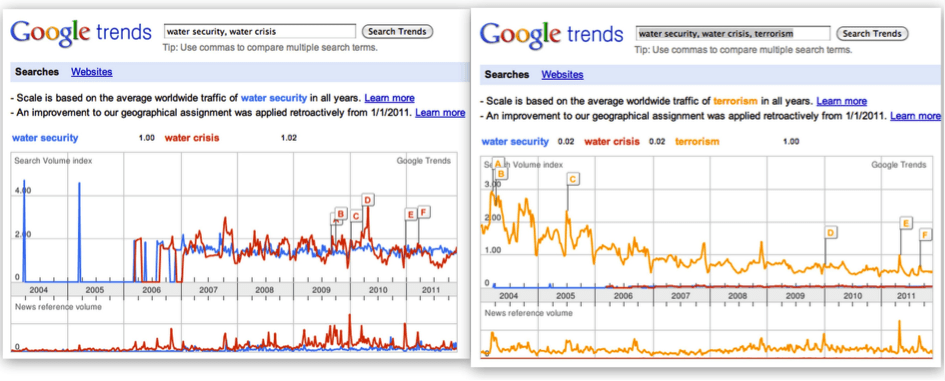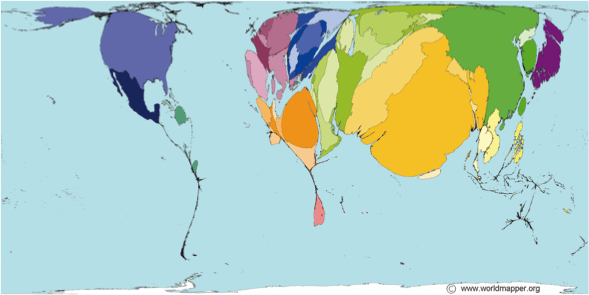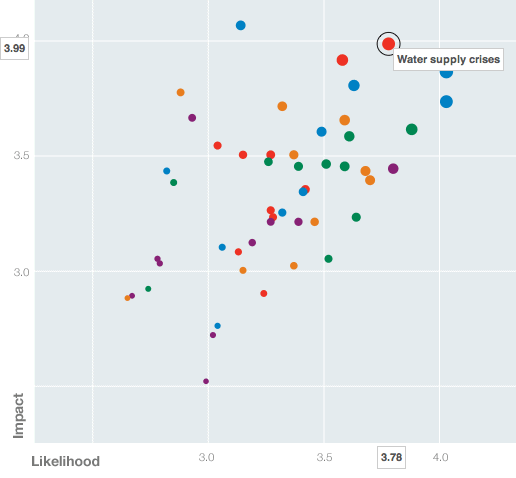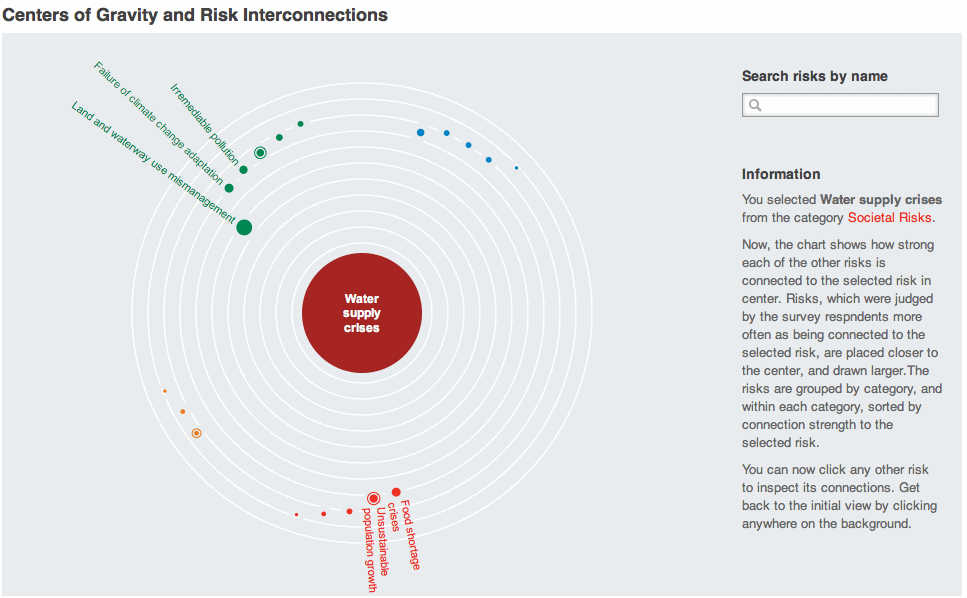上集摘要:在 2212 EVT、 Everstate (与我们现实中的国家相对应的理想类型,旨在 预知 的 现代民族国家的未来)知道民众的不满情绪在不断上升。政治当局越来越无力保障公民所寻求的安全,这增加了整个体制合法性的风险。导致埃弗斯塔坦政治当局无力提供安全保障的前两个现象是:预算赤字不断加深,对流动资金的需求不断增加,以及与此相关的资源侵占,而中央公共权力的力量却在削弱,从而使各种精英集团获利。第一类是贷方集团。第二类精英集团正在发展以 Everstate 所需的资源为重点的据点,Novstate 公司的极端外包形式就是一个例子。
过时的世界观导致误解和脱节

不满情绪在 Everstate 中沉淀下来,随之而来的是紧张局势的缓慢加剧、不满范围的不断扩大以及不公正感的逐渐增强。人们继续徒劳地寻求安全感。埃弗斯塔特人试图给他们的苦难赋予意义,了解他们身上发生了什么,为什么会这样。
与此同时,Everstate 的管理机构也在想方设法解决面临的各种问题,这就需要了解情况。

这种追求意味着,"Everstate "以及更广义地说,"Everstate "所属的自由秩序目前所持的规范模式越来越失灵和过时。事实上,如果对这些模式进行调整,它们将为高效、令人满意的行动和意义提供正确的框架。而现在,一切都不再有意义,情况几乎每天都在恶化。经济效率越来越低;政治当局的行动一再无法确保安全;不满情绪增加;国家机器的正式官僚机构在许多层面上受到质疑,包括官僚机构本身;国家基础设施现在似乎无法履行其职能;对公共资源和权力的侵占增加。这些都是所遵循的模式出现问题的信号或症状。
但是,既然如此,为什么新的模式还没有出现呢?到底发生了什么,为什么?
事实上,Everstate 和它的伙伴国家现在必须面对一个社会可能面临的最严峻的挑战之一,如果不是最严峻的挑战的话。他们面临的内在困难是,必须改变构成其生活和相关机构的各种模式。

目前,只有一种主要的社会政治秩序模式决定着世界上大多数国家(包括 Everstate )的组织和行为:现代民族国家,其自由民主的版本只关注公民物质福利的改善。其他变体,如共产主义,正如冷战所显示的那样,已经失败了,我们已经从其他国家的经验中吸取了教训。除此之外,别无他法。因此,如果需要变革,就必须创造新的东西,而这确实非常困难。

首先,意识形态的利害关系在起作用。社会政治秩序的模式既植根于过去,也植根于日益深化的信仰体系,而这些信仰体系本身又是历史性地建构起来的*。
第一层是规范或信仰体系,它可以被视为一种 意识形态 (一套理念),与宗教信仰体系十分相似,具有神圣的内涵和情感依附。

它还包含特定社会或国家的文化和风俗。 它随着时间的推移而缓慢演变。例如,各国适用的法律概念就是从这一层面衍生出来的。
然后,这一层又包含在系统层面的规范性信仰中,并与之相互作用,这些规范性信仰是由不同的信仰体系和行为者之间的相互作用构建而成的。例如,国家是领土、主权、独立的存在,现代化(现代化)的重要性,这是从 19 世纪末开始构建并强加给世界的准则**。
然后,我们会发现最深层次的规范,可以称之为范式,其中包含那些最关键、最深刻和最基本的价值观。 例如,关于生与死、关于人类在宇宙中的地位、关于宇宙的进化、关于基本伦理等的基本思想都可能位于这一层次。
每一层规范都是过去演变和过去规范的结果,是集体努力面对过去历史状况的产物。每一层都以不同的速度演化,其程度越深,改变它的难度就越大,任何潜在的改变都会带来更大的威胁,在集体和个人层面上,改变它的经历也会更加喋喋不休。然而,由于更表层的社会政治模式以其特定的 Everstatan 形式存在于其他层面之中,并包含了其他层面的元素,因此任何改变都同样会带来恐惧。
除了人类在面对新的证据时难以修正模式****之外,考虑到改变社会政治秩序模式的困难和后果,保持这种模式的意识形态利害关系也是如此。最后,由于这些模式是规范性的,对其提出质疑就会产生一种被群体抛弃的恐惧,而这种恐惧又是内化的,因为如果一个人被排斥在群体之外,他就不可能独自生存。因此,可能质疑这些模式的新证据要么被忽视,要么被有意无意地否定。这种否定的可能性随着所触及的信念的深度而增加。

知识和理解机构是意识形态和规范体系的保障。因此,根据它们所维护和代表的规范,它们也为社会中的管理机构提供合法性。至少在一开始,根据其特定的规范立场,它们倾向于进一步禁止质疑,阻止新思想和新模式的出现。与此同时,由于现实与准则之间的脱节日益加剧,以及由此产生的功能障碍和困难,人们越来越强烈地要求另一种理解,一种适应当前现实的理解,这为其他知识传播者的崛起或传统知识传播者的重大革新提供了力量。
考虑到 Everstate 在历史上和规范上的地位,知识和理解机构主要位于学术界,特别是那些设计和维护最新社会政治秩序模式的部门:经济学系和商学院,并得到一些最自由和最具经济头脑的政治学研究的支持,以及一些更专注于技术和应用科学的部门。
Everstate 拥有非常优质的大学,在过去的 60 年里,它们提供了越来越多公认的科学知识和理解,尤其是在经济、商业和技术等主要规范领域。它们培养了一代又一代的公务员,同时也发挥着智囊团的作用。由此提供的分析在全国范围内得到广泛认可,被认为具有解释性,并为统治机构提供了良好的建议,从而促进了善治,并使国家的合法性神圣化。这些大学融入了全球学术网络,"Everstate "学者的足迹遍布世界各地,在国际研讨会上也能听到他们的声音,同时他们也为全球知识做出了贡献。
有趣的是,在 Everstate 中,科学机构不再被视为一个单一的机构,作为一个单一的行为者,它将保护所有的规范。在过去的几个世纪中,学科组织被那些坚持以现代化和唯物主义方式划分世界的人所掌控,使少数人获得了权力,但学科组织本身也蕴含着潜在革新的种子。事实上,随着对新的充分理解的需求增加,如果必须修改规范,如果必须摒弃某些信仰,那么学科的分离就意味着科学没有必要完全消亡,而只需要修改甚至摒弃其中的一部分。这也意味着,在不久的将来,大学内部、Everstate 和全球范围内都可能发生争斗。
一些教会,至少是那些适应现代生活中更物质化部分的教会,也有助于维护规范。然而,由于埃弗斯塔特人对宗教相对不感兴趣,教会的影响迄今为止还微不足道。然而,人们注意到,随着公民寻求意义和理解,一些宗教正在复兴,而主流信仰已不再带来这种理解。因此,在未来的岁月里,教会很可能会发挥越来越重要的作用,尤其是在科学无法在需要时得到更新的情况下。
国际机构,如国际货币基金组织(IMF)、世界银行或联合国各机构,诞生于最新的制度规范,为了维持这些规范,它们也为加强这些规范的普遍性和正统性做出了贡献。最新诞生的全球性机构是私营机构,它是一个强大的全球性公司协会,甚至可以影响国家元首。它维护所有与商业有关的准则。为实现进一步的或不同的地区和全球治理而做出的努力,让我们期待着在这一层面出现新的参与者,以及即将到来的相关规范之争。任何质疑或改变这些组织所维护的准则的企图都会遭到激烈的反对。
为了完善这一结构,我们发现在这些机构中接受过培训的专业人员,在掌握了对这一在过去条件下建立的系统的运作至关重要的技能之后,也充当了规范的守护者。例如,来自企业界的商业顾问或高级管理人员,尤其是在与金融相关的领域,充当着不容置疑、不容置疑的大师的角色。考虑到其混合特性,Novstate 在规范领域尤为活跃,从为大学和智囊团的研究项目提供专项资金,到充分利用其朋友网络,尤其是在主流媒体中。
待续…
———-
* 四层准则和信念的组织结构在此只是一个假设。它们中的每一层都可能是一个复杂的系统,对它们之间的相互作用、产生和演变方式进行更多的研究将是非常有价值的。
** 尤其见 Bull, H.、 无政府主义社会。世界政治中的秩序研究(London: MacMillan,1979); Bull, H. and A.Watson、 国际社会的扩展(牛津:Clarendon Press, 1984); Gong, G. W..、 国际社会的 "文明 "标准(Oxford: Clarendon Press, 1984), Lavoix, Helene、 民族主义 "和 "种族灭绝":民族性、权威和反对的构建--柬埔寨的案例(1861-1979)--博士论文--东方和非洲研究学院(伦敦大学),2005年关于现代化,参见吉登斯,安东尼、 现代性的后果剑桥:政治出版社,1990 年)。
*** 小理查德-豪雅、 情报分析的心理学, 中央情报局情报研究中心,1999 年,将认知偏差定义为 "由我们简化的信息处理策略造成的心理误差",源于 "处理信息的潜意识心理程序"。认知偏差是一种具有一致性和可预测性的心理错误"。第 9 章。除其他偏差外,在这里起作用的还有一种偏差,即所谓的 "基于不可靠证据的印象持久性(难以抛弃最初创建的因果模型)"。- Anderson, Craig A., Mark R. Lepper, and Lee Ross."社会理论的持久性。解释在信誉不佳的信息持续存在中的作用." J杂志 人格与社会心理学》,1980 年,第 39 卷,第 6 期,1037-1049 页。








































